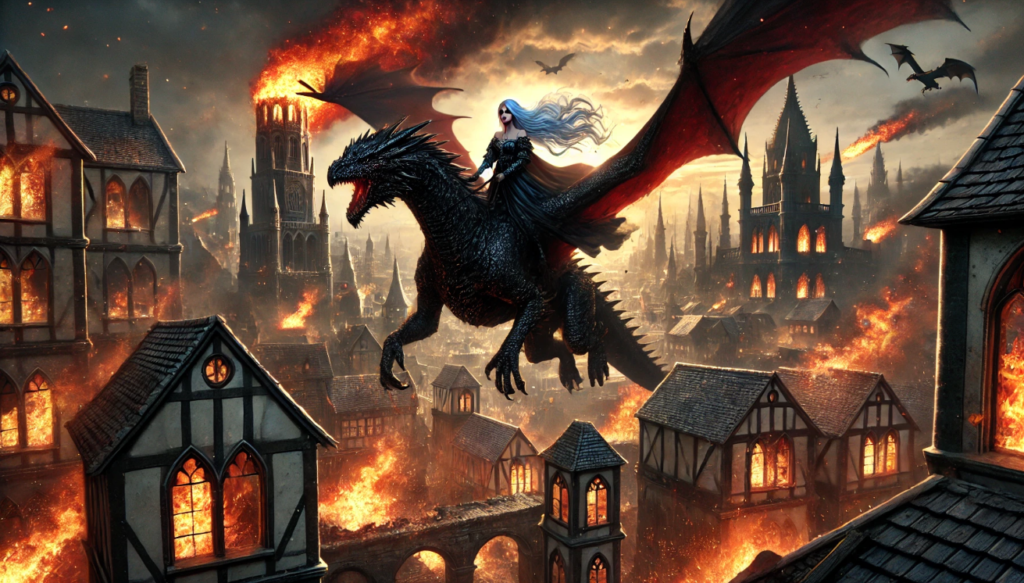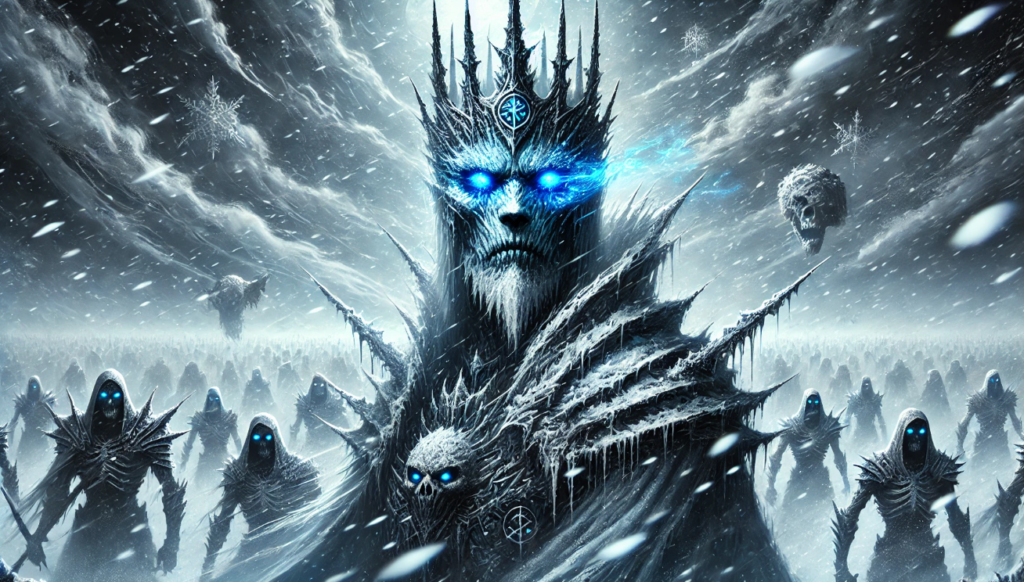
Few characters in Game of Thrones were as cunning, manipulative, and calculating as Petyr Baelish, better known as Littlefinger. From orchestrating major conflicts to pulling the strings behind powerful houses, he seemed untouchable—until everything unraveled in one unforgettable moment. Littlefinger’s unexpected downfall shocked fans and marked a turning point in the series, exposing the limits of deception and ambition. But how did one of Westeros’s most skilled schemers meet such an abrupt and dramatic end? In this article, we’ll break down the key moments that led to his demise and explore why his fall was as impactful as it was surprising.
The Rise of Littlefinger
Petyr Baelish, also known as Littlefinger, was born and raised in the Fingers, a small and relatively poor region of the Vale. His humble origins instilled in him a drive for power and influence. During his youth, Baelish formed a close relationship with Catelyn Stark and harbored unrequited feelings for her. This connection also led to his interactions with the Tully family, as Catelyn was a member of House Tully. These early relationships would play a significant role in shaping Baelish’s ambitions and actions in his journey to power.
Climbing the Ladder of Chaos:
His philosophy on chaos as a ladder is a strategic approach to gaining power and influence by taking advantage of chaotic situations. By manipulating noble houses, forming marriage alliances, and ultimately gaining control of the Vale and King’s Landing, he was able to climb the social and political ladder and achieve his desired level of power. This philosophy demonstrates his shrewdness and ability to turn chaotic circumstances to his advantage.

The Illusion of Control
Littlefinger, also known as Petyr Baelish, is a character in the popular TV show Game of Thrones and the book series A Song of Ice and Fire. Throughout the series, Littlefinger is portrayed as a cunning and manipulative character who believes in his ability to outsmart everyone around him. Littlefinger’s belief in his own intelligence and cunning is a central part of his character. He is constantly scheming and plotting to advance his own interests, often at the expense of others. He is known for his ability to manipulate people and events to his advantage, and he is often several steps ahead of those around him. However, Littlefinger’s belief in his ability to outsmart everyone ultimately leads to his downfall.
is a common tactic used by many politicians and leaders in order to maintain power and control. It’s important to be aware of these tactics and to critically evaluate the information and alliances being presented in order to make informed decisions. Staying informed and being able to anticipate and counter these tactics is crucial in navigating political landscapes and holding leaders accountable.

Examples of Success:
The conflict between the Stark and Lannister families and the orchestration of Joffrey’s assassination are part of the intricate and dramatic storyline in the popular television series “Game of Thrones.” The feud between the two families and the political maneuvering and betrayal that lead to Joffrey’s death are central to the show’s gripping narrative and complex character dynamics.
Fatal Mistakes That Led to His Downfall
Overestimating His Influence Over Sansa Stark:
It seems that he underestimated Sansa’s growth and intelligence. Sansa has proven herself to be a strategic thinker and has developed a keen understanding of the game of thrones. Her ability to see through his manipulation and not be swayed against her own sister, Arya Stark, showcases her strength and resilience. It’s clear that Sansa is not to be underestimated, and her growth and intelligence have become formidable assets in the power struggles of Westeros.

Misjudging Arya Stark:
It seems that he underestimated Arya’s abilities and the strong bond she shares with Sansa. This miscalculation led to his schemes being perceived differently than he had anticipated.
Underestimating Bran Stark’s Abilities:
Bran’s transformation into the Three-Eyed Raven allowed him to see and understand the truth about Littlefinger’s betrayal of Ned Stark. With his newfound abilities, Bran was able to access past events and see through Littlefinger’s lies, ultimately exposing his betrayal. This revelation played a crucial role in Littlefinger’s downfall and the unraveling of his deceitful actions. Bran’s transformation into the Three-Eyed Raven proved to be a pivotal turning point in uncovering the truth and holding Littlefinger accountable for his actions.
Hubris and Overconfidence:
Including when he boasted about his past successes without considering the impact on his current team’s morale, and when he confidently revealed sensitive company information to a competitor in a misguided attempt to assert his dominance. This overconfidence led him to reveal too much, too soon, ultimately undermining his own position and jeopardizing the success of his team. It’s important to strike a balance between confidence and humility in order to maintain credibility and trust in professional situations.
The Trial and Execution
Provide a scene breakdown of Littlefinger’s trial in Winterfell:
Well, Arya’s role as the executioner was certainly unexpected, but it ultimately served a greater purpose in the grand scheme of things. It was certainly a shock to see his manipulation unravel in seconds, but it’s a testament to the strength and resilience of those around him.
Well, it seems that Sansa has made an unexpected accusation regarding Arya’s role as an executioner. It must have been quite a shock to see his manipulation unravel in seconds.

Themes and Lessons from Littlefinger’s Downfall
The Price of Betrayal:
His betrayal of key allies, such as Ned Stark, came back to haunt him in several ways. Firstly, it led to a loss of trust and support from those who had once been loyal to him, weakening his position and leaving him vulnerable to further betrayals. Additionally, it damaged his reputation and honor, making it difficult for him to gain the trust and respect of others in the future. Ultimately, his betrayals led to a series of events that contributed to his downfall and eventual demise.

The Dangers of Overconfidence:
It is important to know when to stop pushing the boundaries because it helps to maintain healthy and respectful relationships with others. Pushing boundaries too far can lead to conflict, hurt feelings, and damaged trust. Recognizing and respecting the limits of others also demonstrates empathy and consideration. Additionally, knowing when to stop pushing the boundaries can help avoid potential negative consequences and maintain a positive reputation. It is important to be mindful of how our actions impact others and to practice restraint when necessary.
Empowerment of Women in Westeros:
Sansa and Arya played crucial roles in bringing down a man who manipulated them. Sansa, through her knowledge of court politics and strategic thinking, was able to rally support and gather evidence against the manipulative man. Arya, on the other hand, used her skills as a trained assassin to gather information and carry out the final act that led to the man’s downfall. Together, they were able to use their individual strengths to bring about justice and ensure that the man could no longer harm others. Their collaboration and determination were essential in bringing down their manipulator.
Littlefinger’s Legacy in Westeros
Analyze the ripple effects of his death:
The power dynamics in the North and Vale were significantly impacted by the removal of key figures such as Jon Snow and Petyr Baelish. Their absence shaped the final season by creating power vacuums and shifting alliances. Speculating on whether Westeros would have been different had Jon Snow survived is a complex and subjective question. It’s possible that his leadership and sense of justice could have influenced the outcome of the conflicts and alliances in the region. However, it’s also important to consider the multitude of other factors at play in the Game of Thrones universe. Ultimately, it’s impossible to say for certain how things would have unfolded.

Conclusion
Littlefinger’s character arc in Game of Thrones is a prime example of the consequences of playing the game of thrones. Initially a mastermind and manipulator, Littlefinger’s downfall came as a result of his own scheming and deceit. Key mistakes in Littlefinger’s downfall include underestimating the power and intelligence of those around him, as well as his own arrogance and overconfidence in his ability to manipulate and control situations. His implications were dire, as he ultimately became a victim of his own game, leading to his demise. The thought-provoking question is whether Littlefinger’s downfall could have been avoided if he had changed his approach.













